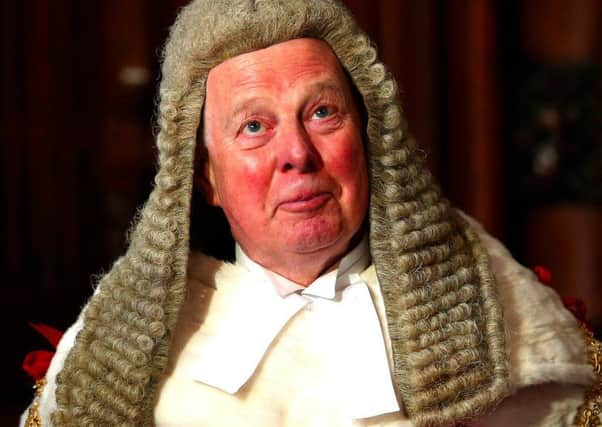High court grants us hope of Brexit halt


The Lord chief justice told the High Court that the “government does not have power under the crown’s prerogative to give notice pursuant to article 50 for the UK to withdraw from the European Union”.
And with this redemptive ruling may the angels dance. The judiciary has decided to let the light in. This means that Brexit could be halted if not altogether stopped depending on how parliament will vote on the issue.
Advertisement
Hide AdAdvertisement
Hide AdMany may regard this as an undemocratic response to the will of the British people who voted for Britain to thoroughly disengage from Brussels and act to stop certain aspects of British law being made subordinate to the EU, for example with regard to the European Convention on Human Rights.
But the reality is that the referendum result was based not on voters being made fully cognisant of the apocalyptically disastrous consequences of Brexit, but rather became an opportunity for the expression of the understandable anger of a population tormented by austerity cuts; this was always about expressing the people’s disillusionment with the current political dispensation and a Brussels elite it does not see as sympathetic to the man on the street.
The referendum became a vehicle for the expression of widespread discontent with government in general and the ways in which it has enshrined inequality, poverty and dispossession. If it had been made sufficiently clear to the people - and it was not - that Brexit would mean further economic pain, a diminished jobs market, devaluation of the pound, an unfeeling and callous response to immigration and the loss of a vitally important legal safety net in the ECHR - nobody would have voted in favour of this unless they actively wished to choose to make life more difficult as opposed to easier.
Northern Ireland, remember, voted to remain. Campaigner Raymond McCord has been granted funding to challenge the UK decision to leave the EU, cognisant of the particular ramifications this will have for Ulster - ramifications pertaining to the possible re-introduction of a hard border and a potential threat to the hard-won stability Northern Ireland has tentatively achieved. Mr McCord should be applauded for doing what brave men do: acting so that the evil of insular patriotism may not triumph over a more expansive European and communitarian ethic.
Advertisement
Hide AdAdvertisement
Hide AdThe High Court has granted us hope of finding another way through this. Within hours of the ruling the pound - currently at an historic 31 year low - surged to a four week high as investors interpreted this as a sign Brexit may be halted, with UK membership of the single market secured.
It has never been in the best economic interests for Britain to leave the EU, as the IMF have repeatedly indicated. And rather than establishing draconian immigration controls to placate Eurosceptics, Britain should stand shoulder to shoulder with Brussels in establishing and maintaining policies that will allow as many refugees to make their home here and across the continent as possible. We must embrace the reality of the global refugee crisis and let compassion reign - mostly because every single one of us, were we in a situation where we were made to flee war in great danger with nothing but the clothes on our backs, would expect welcoming mercy and shelter. We should do everything in our power to stop any kind of breakdown of the quasi-federation of member states that the EU represents, not least because building and maintaining strong relationships between different countries is a vital safeguard against future division conflict.
Brexit is the further possibility of division across the continent. We must recall the noble reasons why the EU was founded and battle to reform it from within.